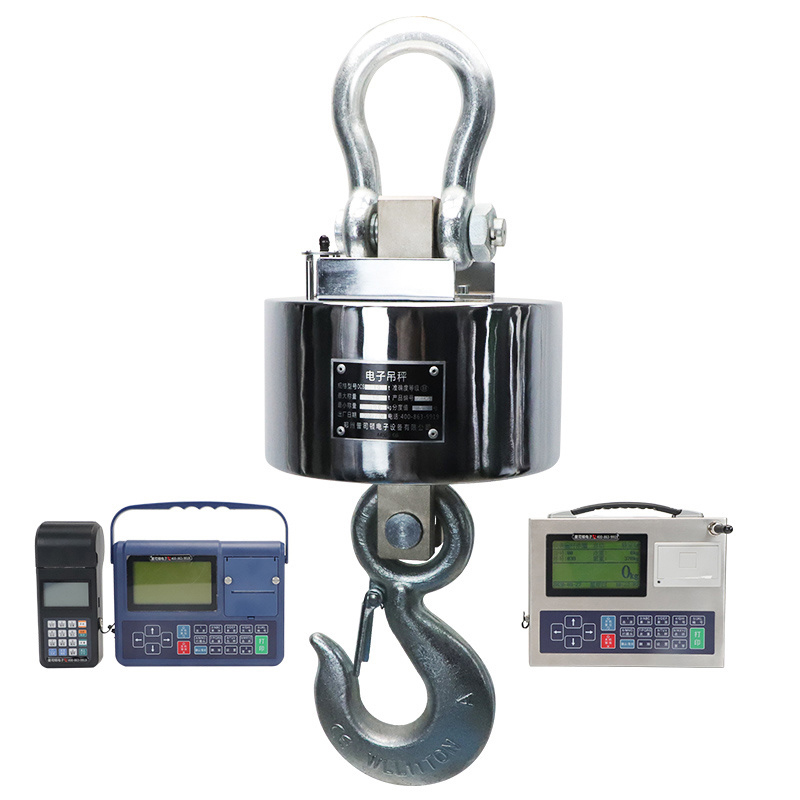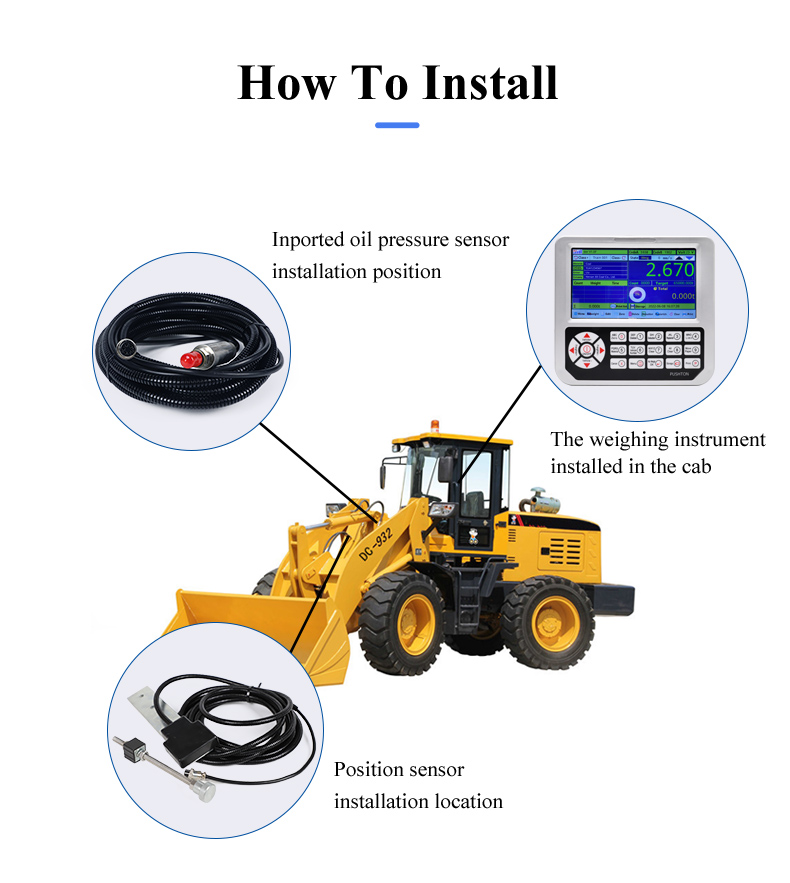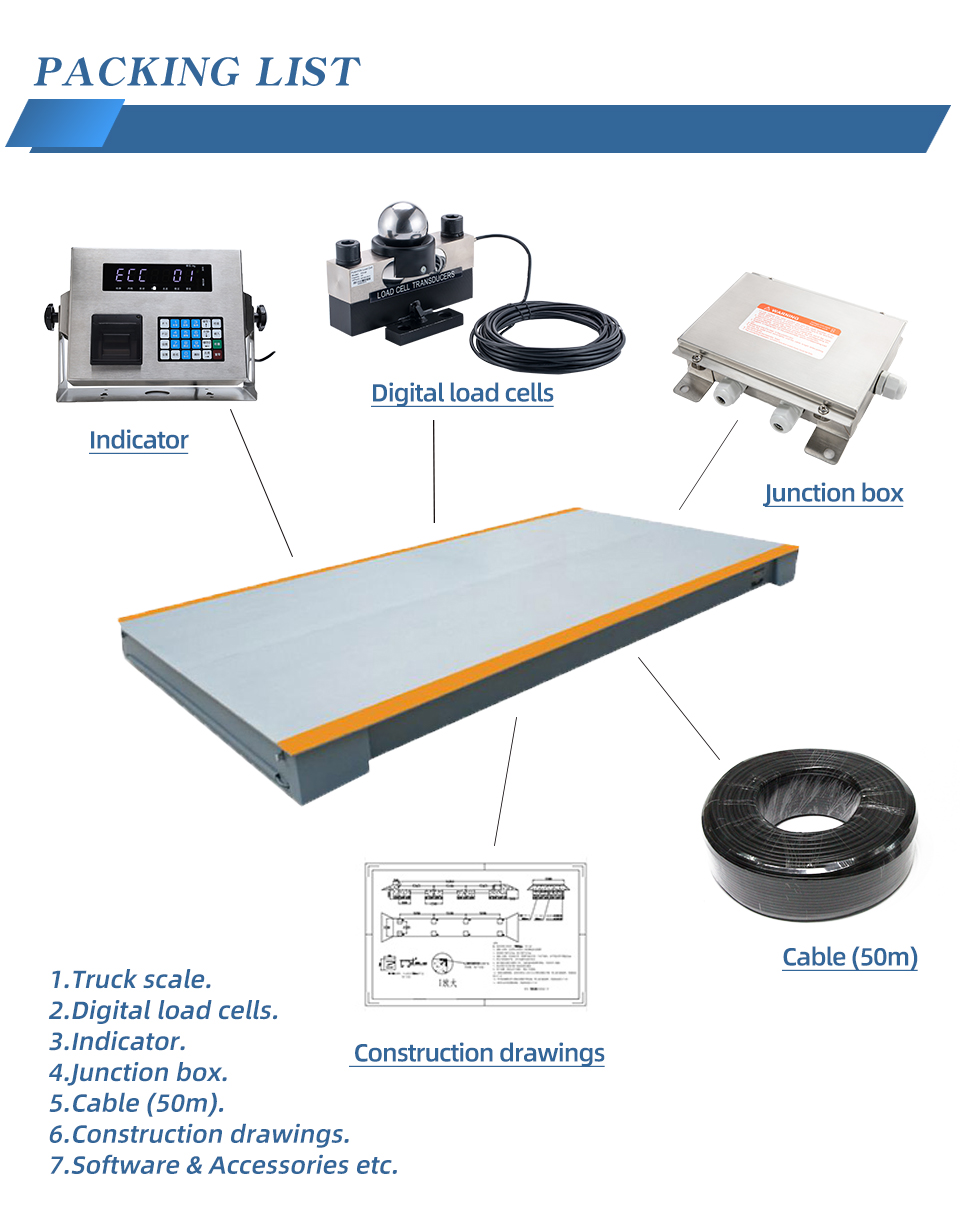Industrial weighing instruments, commonly known as: scales, are a type of weighing instrument that are specially used for loading and unloading weighing, process control or production and sales statistics in the fields of metallurgy, petrochemicals, coal and other industrial factories and mines and related logistics, freight, distribution and other occasions.
Industrial scales also use Hooke's law or the lever balance principle of force to measure the mass of an object. According to the structural principle, it can be divided into three categories: mechanical scales, electronic scales, and electromechanical scales. They are mainly composed of measurement carriers, sensing devices, display devices, etc. Its main varieties include crane scales, loader scales, traveling scales, platform scales, balances, steelyards, case scales, platform scales, ground scales, above ground scales, track scales, belt scales, postal scales, batching scales and bag scales. The focus of the development of industrial weighing instruments is electronic weighing instruments. The supporting use of modern technologies such as program control, group control, telex printing records, and screen display make the scale fully functional and more efficient. An instrument used to determine the mass of an object by measuring its weight (the amount of gravity exerted on it).
Crane scale

Crane scale, also known as hook scale, hanging scale, hanging scale, hook scale, is a weighing instrument that puts objects in a suspended state to measure their mass (weight). It implements the latest industry standard GB/T 11883-2002 and belongs to OIML III level scale. Crane scales are generally used in steel, metallurgy, factories and mines, cargo stations, logistics, bazaars, workshops and other occasions that require loading and unloading, transportation, measurement, settlement, etc. Common models are: 0.5T, 1T, 2T, 3T, 5T, 10T, 20T, 30T, 50T, 100T, 150T, 200T, 300T and so on. Common industrial crane scales can be divided into wireless electronic crane scales, direct display crane scales, hook head scales, etc.
Loader scale, forklift scale

Loader scale/forklift scale is a kind of measuring equipment that combines the user's needs to weigh loaded bulk materials in practical applications. It can be used for vehicle loading measurement, load limit measurement, earthwork measurement, etc. It is an OIML III scale and is widely used in factories, mines, freight, construction and other occasions. It consists of sensors and weighing display instruments, which can complete related measurement work while loading and unloading operations of loaders/forklifts, and can effectively measure overload, underload, process control and production and sales management.
Floor scale, truck scale

Floor scale is a large scale set on the ground, usually used to weigh the tonnage of trucks. Truck scales, also known as truck scales, are the main weighing equipment used in factories and mines for bulk cargo measurement and for government highway control. The common truck scale before the 1980s was also called a mechanical floor scale. In the mid-1980s, as high-precision load cell technology became increasingly mature, mechanical floor scales were gradually replaced by electronic truck scales with high precision, good stability, and easy operation.